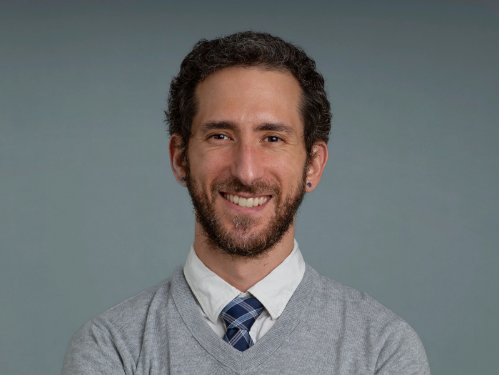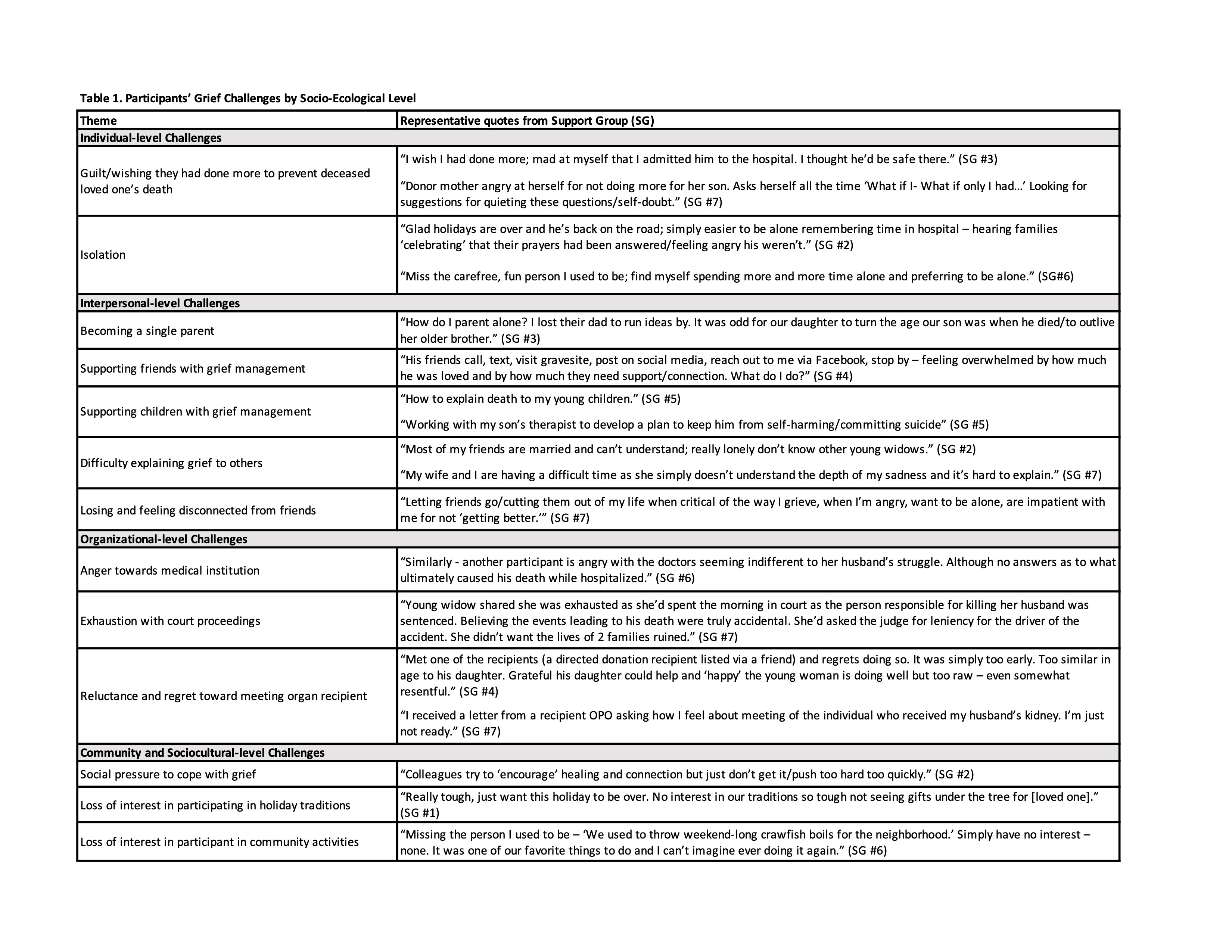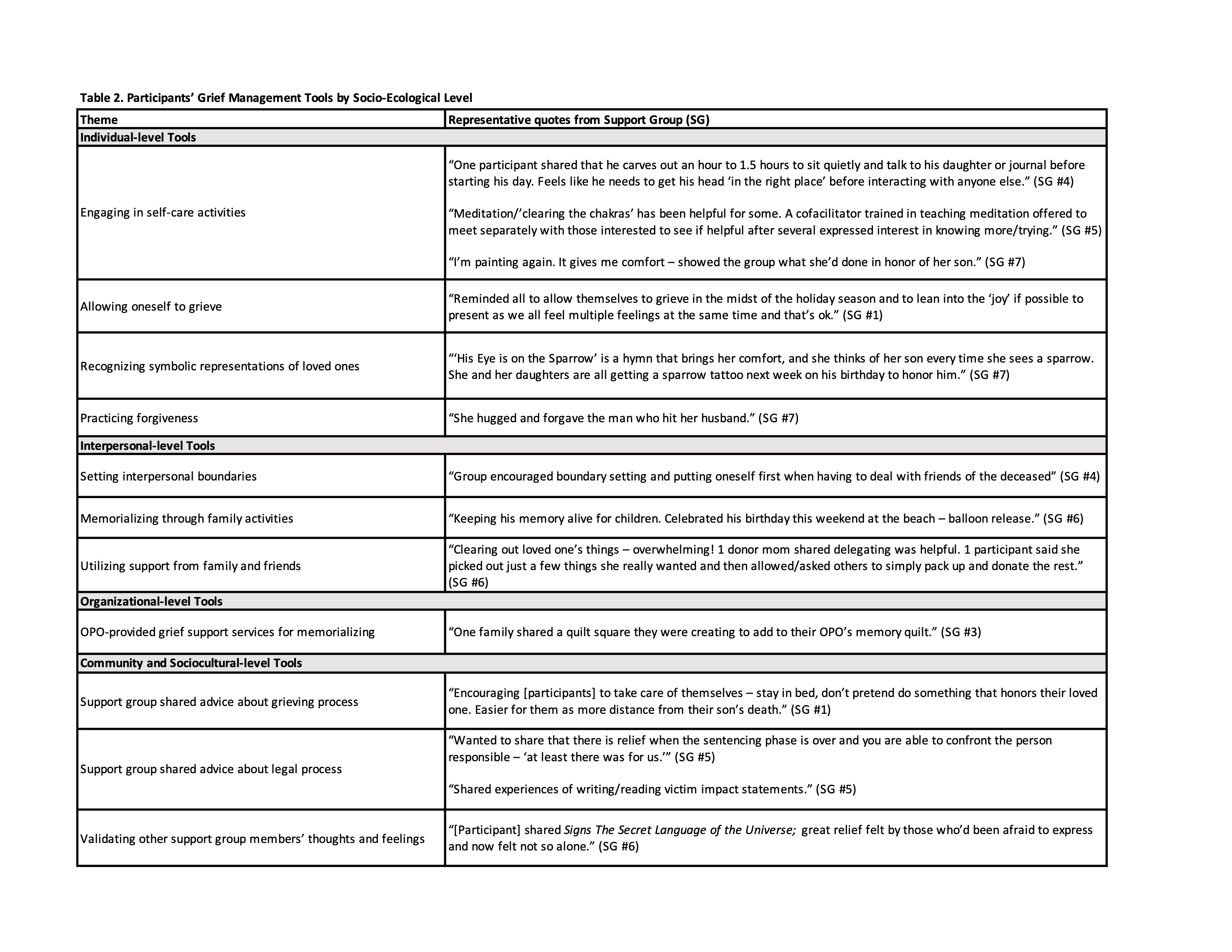
Understanding deceased donor families’ challenges with and tools for managing grief post-organ donation: a qualitative exploration of donor family grief support groups
Kadiatou Diallo MPH1, Max Downey BS1, Elizabeth Hughes PhD2, Carolyn Sidoti BS1, Karen B Vanterpool PhD, MPH1, Brendan Parent JD1,3, Laura L Kimberly PhD, MSW, MBE3,4, Brittany Koons PhD, RN5, Tara Storch BBA2, Macey L Levan JD, PhD1,3.
1Department of Surgery, NYU Langone Health, New York, NY, United States; 2Taylor's Gift Foundation, Coppell, TX, United States; 3Department of Population Health, NYU Langone Health, New York, NY, United States; 4Hanjorg Wyss Department of Plastic Surgery, NYU Langone Health, New York, NY, United States; 5M. Louise Fitzpatrick College of Nursing, Villanova University, Villanova, PA, United States
Introduction: While deceased organ donors give the gift of life through transplantation, they leave behind a grieving family in need of bereavement support. There is a paucity of research examining grief-related challenges that donor families encounter after donation. The non-profit Taylor’s Gift Foundation provides a novel grief support program for organ donor families through their Kindred Hearts Program (KHP). We assessed field notes from KHP support groups to identify challenges experienced and tools for grief management utilized by donor families.
Methods: We analyzed 7 KHP grief support groups attended by donor family members which occurred from December 2022 to March 2023. Field notes written by a clinical psychologist were analyzed using rapid qualitative analysis. We identified and categorized themes using a socio-ecological framework (individual, interpersonal, organizational, community and sociocultural).
Results: Support groups had an average of 7 participants (min=4, max=10), with a total of 15 participants across all sessions. Most participants attended an average of 3 support groups. Individual level challenges included psychological impacts of grief (i.e., guilt, or wishing they had done more to prevent loved ones’ death, and isolation). Participants also expressed reluctance and regret meeting recipients (e.g., not ready). Interpersonal level challenges were related to new relationship roles and responsibilities (e.g., becoming a single parent, supporting children and friends with grief management). Interpersonal challenges also included difficulty with others understanding participants’ grieving process, and feeling disconnected from and losing friends. On the organizational level, participants experienced emotional challenges (e.g., anger, exhaustion) from involvement in court proceedings related to their loved ones’ death and interactions with medical and legal institutions. Community and sociocultural level challenges included social pressure to move past grieving and lost interest in participating in social activities. Participants identified several tools for grief management: engaging in self-care activities, allowing oneself to grieve, recognizing signs of loved ones, practicing forgiveness, setting interpersonal boundaries, maintaining positive connections, utilizing social support, and memorializing loved ones through family and community activities. Participants also shared organ procurement organization grief support services they used to memorialize loved ones. Support groups enabled and encouraged participants to share their experiences with other donor family members who had similar experiences in grieving and legal processes but were at different timepoints since their loved one’s death.
Conclusion: KHP support groups revealed multi-level challenges for grieving families of deceased donors. Support groups also allowed families to share grief management tools amongst each other.

